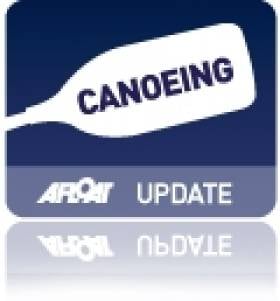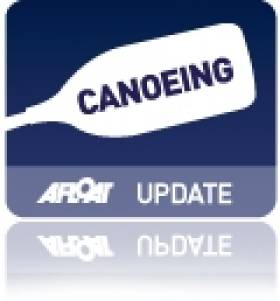Displaying items by tag: Baku
#CANOEING: Jenny Egan finished fourth, in a photo finish, in the final of the K1 5000 metres at the European Games in Azerbaijan today. Egan was just .455 of a second off matching the bronze medal she achieved at the European Canoe Sprint Championships in the Czech Republic in May. That race was won by Maryna Litvinchuk of Belarus, who again took gold today in Baku. Britain’s Lani Belcher, who was second, and Renata Csay of Hungary edged Egan out of medal contention. Both were within .7 of a second of Egan’s time.
Earlier Jenny Egan finished sixth in the B final of the K1 500 metres, 15th overall. Andrzej Jezierski finished fourth in the B Final of the men’s C1 200 metres, 13th overall. Peter Egan finished 21st in the men’s K1 5,000 metres.
European Games 2015, Baku, Azerbaijan
Canoe Sprint (Irish interest)
Men
C1 200 – B Finals (Places 10 to 18): 4 A Jezierski 42.244 seconds.
K1 5000 – Final: 21 P Egan 23 mins 13.183.
Women
K1 500 – B Final (Places 10 to 18): 6 J Egan 2 min 11.396 seconds.
K1 5000 – Final: 1 Belarus (M Litvinchuk) 22 min 48.990 secs, 2 Britain (L Belcher) 23:05.625, 3 Hungary (R Csay) 23:05.851; 4 Ireland (J Egan) 23:06.306.
Jezierski and Jenny Egan To Compete in B Finals in Baku
#CANOEING: Ireland’s Andrzej Jezierski qualified for the B Final (places 10 to 18) of the men’s C1 200 metres at the European Games in Baku, Azerbaijan today. Jezierski finished sixth in his heat but improved to fifth in his semi-final. Jenny Egan will compete in the B Final of the K1 500, having qualified on Sunday. She made the semi-finals in the K1 200m but her eighth-placing there means she did not make it through to the A or B final. She is also set to compete in the K1 5000m straight final tomorrow.
Peter Egan and Simas Dobrovolskis finished eighth of eight in their heat of the K2 200m and did not qualify for the semi-finals, while Tom Brennan in the K1 200 made it to the semi-finals but finished outside the qualification mark for the A and B Finals.
European Games 2015, Baku, Azerbaijan
Canoe Sprint (Irish interest)
Men
K2 200 – Heat One: 8 P Egan, S Dobrovolskis 35:049.
K1 200 – Heat Two: 6 T Brennan 35.446. Semi-Final: 8 Brennan 36.191.
C1 200 – Heat One: 6 A Jezierski 42.339 seconds. Semi-Final One: 5 Jezierski 40.277
Women
K1 200 – Heat Three: 6 J Egan 42.843. Semi-Final Two: 8 J Egan 42.657.
K1 500 – Heat One: 6 J Egan 1:55.468. Semi-Final: 7 J Egan 1:52.536.






























































